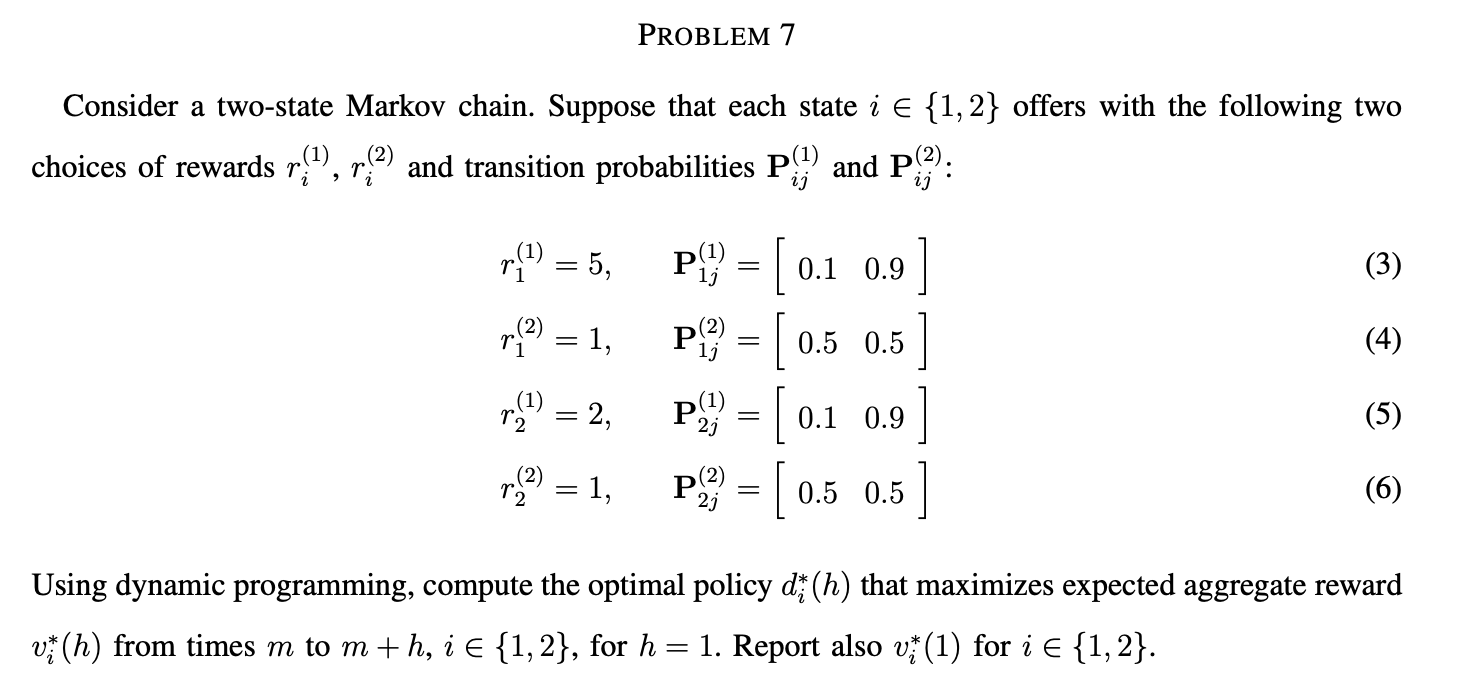Answered step by step
Verified Expert Solution
Question
1 Approved Answer
PROBLEM 7 Consider a two-state Markov chain. Suppose that each state i E {1, 2} offers with the following two choices of rewards r. and

Step by Step Solution
There are 3 Steps involved in it
Step: 1

Get Instant Access to Expert-Tailored Solutions
See step-by-step solutions with expert insights and AI powered tools for academic success
Step: 2

Step: 3

Ace Your Homework with AI
Get the answers you need in no time with our AI-driven, step-by-step assistance
Get Started


